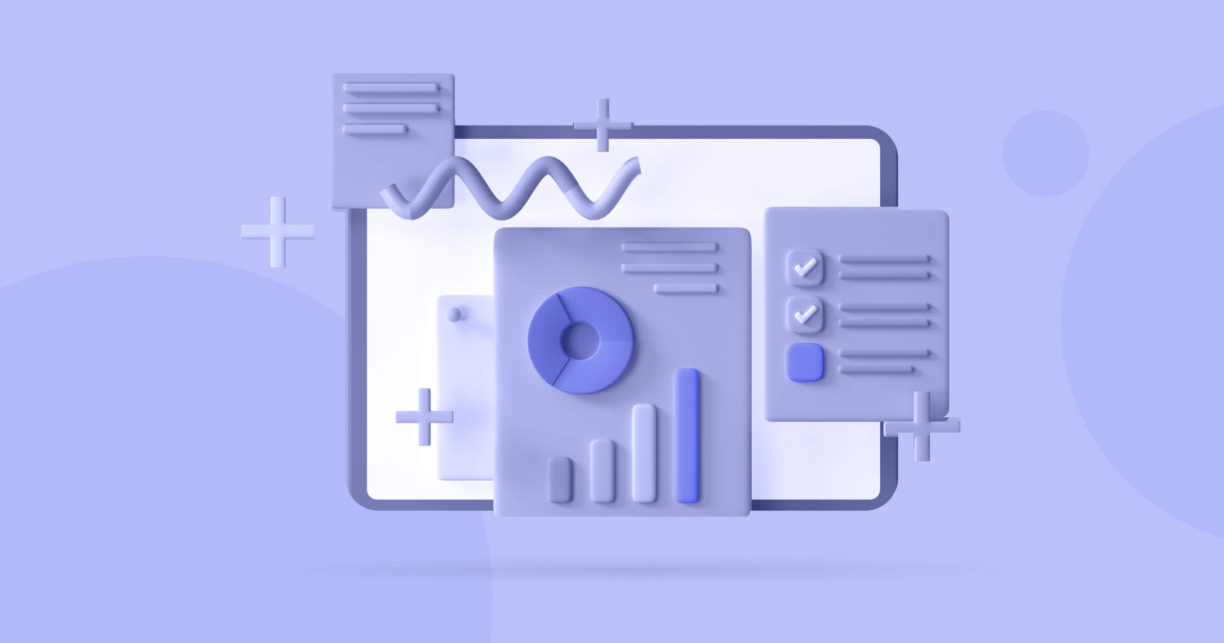Ecommerce is booming, but it’s getting more difficult to attract new customers. It’s getting even more challenging to maintain customer loyalty over the long term.
Most ecommerce businesses are focused on customer acquisition and completely overlook customer retention. They don’t realize that their current audience has a wealth of untapped potential. Customer analytics tools can help you dive deep into your audience to understand what keeps them coming back for more.
1. Google Analytics
Google Analytics is a website traffic tracking tool that’s incredibly easy to install, and no matter what kind of information you want to track, Google Analytics will provide it. Its powerful features are accessible to beginners, experts, and everyone in between.
Google Analytics is often vetted by marketing executives as one of the best customer analytics tools that are available in the market.
The free version includes most of the basic functionality that most ecommerce sites will need—you can see how many visitors come through each day and how long they stay on your site.
If you want more advanced analytics charts or reports (or if you have a more complicated website), then there are paid versions available as well.
Pros
Free: It is free to use and can be integrated into your website in just a few minutes, making it an attractive option for many businesses.
Easy to use: The interface is simple enough that beginners can get the hang of it quickly, while also offering advanced features if you want them (more on those later).
Suitable for small and large businesses: It is an excellent choice if you’re just starting and don’t have much time or money to dedicate to analytics software. If you’re already established but want something simple, that doesn’t require extensive training or maintenance from IT professionals to work efficiently.
Great for ecommerce sites: Since the software collects data points about user behavior on your website, it’s beneficial for ecommerce sites where sales are dependent upon consumers finding what they’re looking for quickly and easily—and buying it!
Cons
It is not user-friendly.
It is not very intuitive.
It’s not easy to implement, and the setup process can be tricky if you don’t know what you are doing.
Tracking is also difficult, especially for ecommerce websites that use dynamic content or content management systems (CMS).
2. HubSpot
HubSpot is an amazing marketing automation tool that helps you grow your business. No list of ‘the best customer analytics tools’ can be completed without mentioning HubSpot.
It’s a platform for managing, measuring, and optimizing your inbound marketing. You can use it to attract new leads, convert them into customers, and close sales.
HubSpot uses a process called “inbound” marketing to do this. Instead of interrupting people with ads or cold calling them on the phone (outbound), they get found in search engines like Google through blog posts or podcasts, which naturally spark interest from potential customers looking for you!
If you have no idea what those words mean right now, don’t worry. We’ll cover all the basics and their pros/cons below to decide if Hubspot is right for your business!
Pros
HubSpot is a great tool for tracking the growth of your website. It allows you to see how many visitors come to your site and how long they stay there. You can also track how many website visitors are coming back again and again, which means they like what they see on your website. This will help you understand what kind of content gets more traffic or leads in sales.
HubSpot also allows you to track how well your website is converting visitors into leads. Suppose people are visiting but not buying anything. In that case, that could mean something’s wrong with either the product or the way it’s marketed in terms of pricing and features offered by other websites offering similar products/services at lower prices.
Cons
Not free: The first con of HubSpot Analytics is that it isn’t free. You will have to pay a monthly fee to use it, which makes it quite expensive compared to other solutions like Google Analytics or Mixpanel.
Not easy to use: Another drawback of using HubSpot Analytics is that the user interface (UI) is confusing and difficult for beginners to navigate. This means that even if you have an idea about what exactly you want from your customer data points but don’t know how to get there quickly. This could be a problem for you too! For example, if someone wants access just once per week, they need an application only available as part of an enterprise software package costing $3200 per month! Therefore, unless companies are willing to spend large amounts each month, this may not work out so well.
3. Verfacto
Verfacto is a new-age marketing analytics tools especially designed for ecommerce businesses to mitigate any blind spots when it comes to performance. The tool can simply be integrated with your eShop and offers real-time and laser-focused analytics to draw insights from. With the tool, you can dive deep into your customers behaviour patterns, optimize funnel strategies and eveluate technical attributes to power result-drive marketing campaigns.
Pros
- Easy Integration: You can connect, integrate and automate Verfacto to enhance and interpret marketing performance. Verfacto is available for Shopify, WooCommerce and Magento stores as well.
- User-friendly: It has an easy-to-use interface with an interactive dashboard where you can see and evaluate your eShop’s performance and make real-time adjustments.
- Access to unique data-points: Verfacto gives you customer insights in a very granular way, with over 30+ technical attributes to review from. One of its features is real-time customer profiler that helps you segment and specifically target customers depending on their behaviour history, stage in the journey and intent. This tool definitely takes data-driven personalization a notch up!
- Free trial: Verfacto offers a free trial period of 14 days, with complete access to the features. This allows you to get your hands on the tool, analyze the value the tool will bring, all before committing to make a purchase.
Cons
As Verfacto tool is relatively “younger” than other tools, it is constantly being upgraded based to meet the market demands. So, some new features aren’t fully rolled-out yet for its users. But they’re growing by the minute, to relieve users from any waiting time to access the entire stack.
4. Kissmetrics
Kissmetrics is a popular customer software for ecommerce businesses. The platform offers a free 14-day trial and comes in three tiers: basic, advanced, and enterprise.
The Basic tier costs $99/month and includes features like customer acquisition reporting, customer retention reports, funnel analysis, and site search tracking.
The advanced tier costs $199/month and has additional features like A/B testing tools and sales funnel reporting. This tier allows you to view your data by customer segmentation (demographics) or location (geography).
Lastly, the Enterprise tier costs $999/month but increases data storage space from 10 GB to 1 TB and access to support via phone or email 24 hours per day, seven days per week.
Pros
Great features: Kissmetrics is a fully-featured analytics software with a lot of features. The application can help you track your visitors and understand customer behavior on your website.
Easy Integration: It integrates with many other platforms, such as Zendesk, Shopify, Facebook ads manager, and even Google Analytics.
Great reporting: In addition to being highly customizable (it has over 70 different reports), it provides data that allows you to easily identify the best marketing channels so that you can focus on them in the long run.
Easy to use: It has an easy-to-use interface wh3ere you just need to select what report you want before getting all the information in one place.
Conversion tracking: Track how many people have completed certain tasks after visiting a page on your website or clicking on an ad.
Funnels: Analyse each conversion path through which users enter into contact with your company.
List growth: Find out how many new leads are added over time.
Retention analysis: See how loyal customers are to your business by analyzing churn rates month after month.
Cons
The cons of Kissmetrics are that it is not a free tool and it is not easy to use. It also does not integrate well with other ecommerce platforms or customer service platforms. Furthermore, integration with marketing tools is also difficult for this tool.
5. Pipedrive CRM
Pipedrive is a CRM built for salespeople by salespeople. It helps you close more deals faster by keeping your team focused on the right priorities, so you can spend more time selling and less time putting out fires.
Pipedrive works for all businesses—from large enterprises to small freelancers—and it’s easy to use whether you’re managing one customer or thousands.
Pros
Easy to use: Pipedrive CRM is the best choice for you if you are a beginner. The interface is very easy and friendly, which makes it suitable for beginners.
Free trial: Pipedrive CRM offers a free trial period of 14 days, which can be extended to 30 days if needed. This allows you to get your feet wet with the software before committing to it. You can use this period to understand how it works and whether or not it will meet your needs as well as gauge its ease of use.
Suitable for small businesses: This software is ideal for small businesses because it has all the features needed by these organizations without being too complex or expensive (which could lead them to hire a costly consultant). It also offers excellent customer support via phone or email so you won’t have any problems getting help when needed!
Cons
Pipedrive is not as intuitive and easy to use as some other products on this list, and it does not have a lot of bells and whistles, which might be what you’re looking for if you’re just beginning your ecommerce journey.
But it also doesn’t have all the features that an experienced seller would want in their CRM software.
6. Delighted
Delighted is a customer feedback software that helps you understand your customers. It’s ideal for ecommerce sites, as it automates collecting and tracking customer feedback.
This software has multiple integrations with other tools such as Shopify, MailChimp, Zendesk, etc. It also has an API that allows you to integrate with your existing systems without any effort.
Pros
It is easy to use. No matter what you’re doing in your business, you need analytics software that can easily be accessed and understood by everyone.
It is easy to integrate with other systems. You don’t want to be the only one who knows how your most important business functions work. You need a system that allows for easy sharing of data between departments and teams so everyone can understand what their roles are in the process and how they fit into the bigger picture.
It is accessible by multiple types of users at once – whether they’re on mobile or desktop (or both!), it doesn’t matter—it’ll work just fine either way!
A new user will find this system very intuitive; there’s no steep learning curve here! Most people can pick up their first day off with little trouble at all—and even better is that they won’t feel like they’re drowning under too much information from day one either! The interface is clean yet comprehensive enough to give anyone everything they could need without being overwhelming for those newbies who might feel overwhelmed by lots of bells and whistles used elsewhere.
Cons
It’s not easy to use.
It’s not easy to integrate.
It’s not easy to setup.
7. Amplitude
Amplitude is a powerful analytics software. Amplitude has a wide range of features that help you with customer data analysis at the individual level and on a competitor level, making it great for taking the correct business decisions.
Amplitude is an easy-to-use platform for managing customer relationships, so it’s easy to get started without training.
Amplitude also offers detailed reporting tools, making it a great solution for ecommerce businesses looking to grow their sales through better understanding their customers’ needs and preferences.
Pros
It focuses on customer acquisition, customer retention, customer engagement, and value across multiple channels.
This data is collected over time to give a full picture of what’s going on with your customers’ behavior throughout their life with your business.
The dashboard has great visualizations built-in, making it easy for anyone who works at the company to understand how things are going for their customers at any given moment in time (and see trends over time).
Cons
It is expensive. This software comes at a hefty price tag, which can be prohibitive for smaller companies.
It is hard to use and not user-friendly. Amplitude’s interface is definitely not the easiest to navigate. There are several steps required before getting started with your customer data analysis (you first have to create a project and then an account).
It isn’t easy to set up or integrate into your business processes. There are also limitations on how much customer data you can pull in from external sources like Google Analytics or Salesforce.
And finally, it also doesn’t offer customization features. This isn’t surprising given its focus on analytics rather than marketing automation for ecommerce companies!
How to Choose the Best Tool for Your eCommerce
Choose a tool that is easy to use: The last thing you want is to be spending your time learning how to use the software instead of actually working on improving your business.
Choose a tool that is easy to integrate with your existing software: If your store uses multiple platforms (ecommerce platform and marketing automation software), it’s important that the customer analytics tool integrates well with them all and does not require any additional development or costs for implementation.
Choose an affordable tool: these software programs can be expensive, so look for something within budget but still has all the features you need from an ecommerce Business Intelligence Platform.
What is Customer Analytics?
Customer analytics is the process of gathering, analyzing, and using customer data to improve your business. It can be applied both to individual consumers who make purchases online and to companies or organizations that buy or sell online.
Examples
Customer retention – How many customers do you still have come back to shop with you? This is a great way to measure how well your business is doing, and it’s a simple number that you can turn into actionable strategies for the future.
Customer loyalty – How many customers do you have who shop with you three times or more per month? This is also one of the key metrics to track, as it shows how loyal your customers are, which means they’re more likely to buy from you again and again.
How Does It Work?
Customer analytics tools collect, process, and present customer data in a variety of ways. It also works with other tools and garners actionable insights to help make strategic marketing efforts.
Customer analytics software typically works by gathering information from the website or app (e.g., page views, mouse clicks) and creating reports on how customers interact with the site or app. It will then use this information to help form marketing strategy and business decisions around product offerings, messaging, pricing, etc.
For example, if you have an ecommerce store that sells clothing for men between 18-25 years who play outdoor sports as a hobby, you would want to know more about these customers than just their gender or age range alone.
Other metrics you may also be interested to know are—what kinds of products do they buy most often? What content do they click through most often when looking at new products? How many times have they visited the site before making a first or repeat purchase?
Answering these questions allows businesses like yours to make informed choices about how much importance should be placed on certain marketing campaigns (like social media ads targeted toward male athletes), which is vital because waiting for results can cost money!
Why is It Important?
Customer analytics are important because they help you understand your customers better. Customers who buy from you are not a black box—they’re real people with wants, needs, and desires. Understanding these motivations will help you deliver exactly what they want in an easy-to-use format that maximizes their experience.
Analytics can help you improve the customer experience on your website. When you know who is visiting your website, what they do when they’re there, and where they’re coming from, it’s much easier for you to understand how to make changes that will improve it.
For example, if customers are leaving your site early in the shopping process or abandoning their carts, you’ll know where they’re getting lost and how you can fix it. This allows you to optimize the shopping experience so that more people complete purchases and fewer customers leave frustrated with a bad experience.
When you have a good understanding of your customers, it’s much easier to market to them. And once you know what they want, it becomes possible to deliver exactly that–and even more.
Conclusion
Customer analytics tools are critical to understanding your customers. The tools listed in this article can help you get started with customer analytics and understand the data you have, but they’re not the only ones out there. Other essential tools include Google Analytics, Upwork, and more.
The best way to learn about customer analytics is through trial and error. If a particular tool doesn’t work for you or your business, try another one until you find the one that does!
Although to save cost, it’s always best to do in-depth research and read several online reviews on the internet related to the product.
The Bottom Line Customer analytics are important, but they’re not the only way to understand your customers. The best way to better understand your customers is by taking the time to talk with them directly.
Implement customer analytics to help gain deeper insights into what motivates your customers and how they think about their purchases. Once you know what motivates them, it’s much easier to deliver precisely what they want—and then some!
This is by no means an exhaustive list! There are many other tools that offer various features, so keep your eyes open for the one that best fits your needs.




